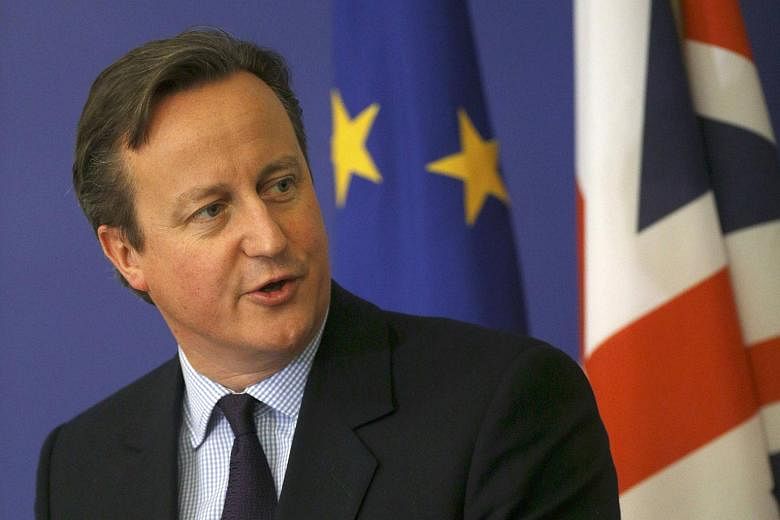AKROTIRI (Cyprus)/LONDON • British bombers have made their first strikes on the Islamic State in Iraq and Syria (ISIS), hitting oilfields in Syria that Prime Minister David Cameron says are being used to fund attacks on the West.
Tornado bombers took off yesterday from the Royal Air Force Akrotiri airbase in Cyprus just hours after British lawmakers voted 397-223 to support Mr Cameron's plan for air strikes, a Reuters witness said. They returned to base safely several hours later.
The four bombers used laser-guided bombs to attack six targets in the Omar oilfields in eastern Syria controlled by ISIS.
"That strikes a very real blow at the oil and the revenue on which the Daesh terrorists depend," Defence Secretary Michael Fallon told the BBC, using an Arabic acronym for the group.
"There are plenty more of these targets throughout eastern, northern Syria which we hope to be striking in the next few days and weeks," Mr Fallon said, adding that Britain was sending eight more warplanes to Cyprus to join the missions.
There was no immediate information about casualties.
The British contribution still forms only a tiny part of the US-led Operation Inherent Resolve, which has been bombing ISIS targets in both Iraq and Syria for more than a year with hundreds of aircraft.
But while the British vote adds little additional military capability to the coalition, it has had outsized political and diplomatic significance since last month's attacks in Paris, given Britain's status as a leading European military power. The country had been wrestling with a decision to join France in expanding its military action.
After 15 years in which hundreds of British troops died serving as the main battlefield ally of the United States in Iraq and Afghanistan, many in Britain are wary of more war in the Middle East. Mr Cameron lost a 2013 vote in Parliament on military action against Syrian President Bashar al-Assad's government.
Mr Cameron said the more than four-year-old Syrian civil war could not be resolved by military action alone, but that the strikes would "degrade" ISIS, a militant Islamist group which has declared a caliphate in large parts of Iraq and Syria.
"It is in Syria where it pumps and sells the oil that does so much to help finance its evil acts," Mr Cameron told Parliament on Wednesday ahead of the vote.
US President Barack Obama said the US is looking forward "to having British forces flying with the coalition over Syria".
Russian President Vladimir Putin, whose army is also bombing Syria outside the US-led coalition, called on the international community to form a joint front under the United Nations to defeat terrorism, as he lashed out at Turkey over the downing of a Russian warplane.
Meanwhile, prosecutors in Belgium said yesterday they have charged two new suspects - a 20-year-old Frenchman and a 28-year-old Belgian - in connection with the Nov 13 Paris attacks, bringing to eight the number of people held in the case.
REUTERS, XINHUA, AGENCE FRANCE-PRESSE
- SEE TOP OF THE NEWS

